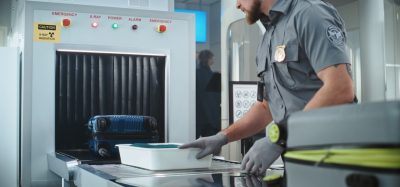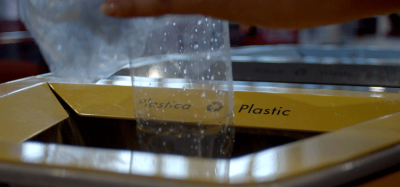IATA urges governments to commit to restoring global air connectivity
Posted: 27 October 2021 | International Airport Review | No comments yet
The International Air Transport Association has urged governments to utilise the commitments reached at the ICAO High Level Conference on COVID-19, towards restoring global air connectivity.


The International Air Transport Association (IATA) urged governments to use the commitments reached at the ICAO High Level Conference on COVID-19 (HLCC) to make real progress towards restoring global air connectivity.
States attending the ICAO HLCC declared their commitment to 14 measures which, if acted upon, would enable airlines to meet the demands of consumers worldwide for a revival of air travel. Two commitments need the most urgent action by governments. These are:
- ‘We commit to taking effective measures to prevent the spread of SARS-CoV-2, the virus that causes COVID-19 and other communicable diseases by international air travel, in particular through the implementation of the ICAO CART guidelines, and encourage the harmonisation of Member States’ multilayer risk management strategies to safely restore international connectivity and support the revival of the global economy as a critical step towards achieving our goal to enhance the social, environmental, and economic sustainability of aviation, ensuring the interoperability and mutual recognition of, and accessibility to, digital applications, secure transmission and validation of pandemic-related testing, vaccination and recovery certification that protects privacy and personal data.’
- ‘We commit to promoting, to the greatest extent possible, a harmonised and inclusive approach to facilitate safe international air travel, including alleviating or exempting testing and/or quarantine requirements for fully vaccinated or recovered passengers, taking into account the different circumstances of individual States and their national policies, in keeping with WHO’s policy and technical considerations for implementing a risk-based approach to international travel in the context of COVID-19 , and providing exceptions for non-vaccinated passengers. This will enable us to work towards strengthening the confidence of the travelling public and safely rebuilding international civil aviation.’
“Government-imposed restrictions continue to stop a revival of international travel. It remains 70 per cent down on pre-crisis levels. The ICAO HLCC commitments show that governments understand what is needed to re-start global connectivity. The task now is implementation. Some governments have already started. The imminent opening of the U.S. market to vaccinated travellers will be a big step forward. But we cannot let the output of this meeting remain as words on paper. The airline industry, 88 million livelihoods, 3.5 per cent of global GDP and billions of travellers are counting on governments to deliver on the risk-managed reopening of international travel to which they have committed,” said Willie Walsh, IATA’s Director General.
Free webinar – The future of asset management in global aviation
15 January, 2026, 02:00PM GMT
Join this virtual panel to hear from some of the AtkinsRéalis and aviation sector experts as we discuss how asset management is changing and the impact it will have on the future operations of airports throughout the world.
CART 3
In October 2021, ICAO published recommendations that will assist the realisation of the HLCC declaration. Known as CART 3 (the Council Aviation Recovery Task Force), the outputs build on previous recommendations from CART, as well as the Take-off guidance and Cross-border Manuals.
Key new or updated recommendations to ICAO member states encompass:
- Implementation and recognition of testing, recovery and vaccinations certificates (including digital formats)
- A harmonised multi-layer risk management approach among states to facilitate international travel
- Entry of fully vaccinated and recovered passengers including consideration of alleviating or exempting such individuals from testing and/or quarantine measures
- Access for air crew to vaccination as quickly as possible as recommended by the WHO Strategic Advisory Group of Experts on Immunisation (SAGE).
“CART 3 is a roadmap toward a risk-based, data-driven approach to managing COVID-19. Its recommendations are the building blocks for states to achieve the ambition of the HLCC declaration. After a year-and-a-half of experience with COVID-19 we have the knowledge, data, and experience to safely facilitate international travel without border restrictions. All the evidence and recommendations point towards restoring the freedom to travel for those vaccinated. It is also clear that we have the capability to manage those without access to vaccination using testing,” commented Walsh.
IATA Travel Pass
The industry is advanced in its preparation to efficiently manage travel health credentials with the IATA Travel Pass. It is a solution that responds to the HLCC’s recognition that a system will be needed to digitally manage COVID-19 pandemic-related testing, vaccination and recovery certification that protects privacy and personal data.
“Airlines cannot afford a restart that is compromised by paper-based processes for checking travel health credentials. Testing is complete and several airlines are already starting implementation of IATA Travel Pass across their networks. It’s also a ready-made solution for governments to be prepared to efficiently manage their documentation processes as demand ramps-up,” added Walsh.
WATCH NOW ON DEMAND: Enabling checkpoint flexibility with responsible open architecture
Join us for an essential virtual panel supported by Smiths Detection. We will explore how airports can overcome the challenge of mixed vendor systems by adopting a flexible, open approach to checkpoint technology.
This session offers a focused look into achieving efficiency, agility, and future-readiness.
Key learning points
- Understand what to ask during procurement to ensure long-term flexibility and avoid vendor lock-in.
- Learn how centralised image review and flexible algorithm use can help you get more from the technology you already own.
- Strategies to make mixed vendor screening systems work together to improve checkpoint performance and reduce costs.
- See examples of collaborative deployments and the operational agility they enabled.
Register now for expert insights from Los Angeles World Airports, Dutch Ministry of Justice and Security, and Smiths Detection!
Related topics
Airside operations, COVID-19, Passenger experience and seamless travel, Passenger volumes, Regulation and Legislation, Sustainability, Sustainable development, Terminal operations, Testing
Related organisations
International Air Transport Association (IATA), International Civil Aviation Organisation (ICAO), World Health Organisation (WHO)


















